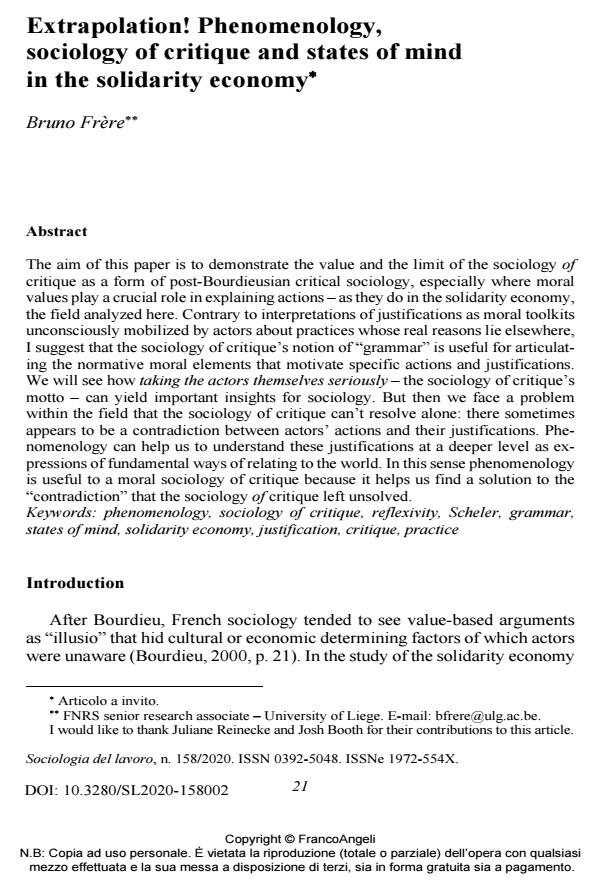Extrapolation! Phenomenology, sociology of critique and states of mind in the solidarity economy
Journal title SOCIOLOGIA DEL LAVORO
Author/s Bruno Frère
Publishing Year 2020 Issue 2020/158
Language English Pages 27 P. 21-47 File size 323 KB
DOI 10.3280/SL2020-158002
DOI is like a bar code for intellectual property: to have more infomation
click here
Below, you can see the article first page
If you want to buy this article in PDF format, you can do it, following the instructions to buy download credits

FrancoAngeli is member of Publishers International Linking Association, Inc (PILA), a not-for-profit association which run the CrossRef service enabling links to and from online scholarly content.
The aim of this paper is to demonstrate the value and the limit of the sociology of critique as a form of post-Bourdieusian critical sociology, especially where moral values play a crucial role in explaining actions - as they do in the solidarity econ-omy, the field analyzed here. Contrary to interpretations of justifications as moral toolkits unconsciously mobilized by actors about practices whose real reasons lie elsewhere, I suggest that the sociology of critique’s notion of "grammar" is useful for articulating the normative moral elements that motivate specific actions and justifications. We will see how taking the actors themselves seriously - the sociolo-gy of critique’s motto - can yield important insights for sociology. But then we face a problem within the field that the sociology of critique can’t resolve alone: there sometimes appears to be a contradiction between actors’ actions and their justifications. Phenomenology can help us to understand these justifications at a deeper level as expressions of fundamental ways of relating to the world. In this sense phenomenology is useful to a moral sociology of critique because it helps us find a solution to the "contradiction" that the sociology of critique left unsolved.
Keywords: Phenomenology, sociology of critique, reflexivity, Scheler, grammar, states of mind, solidarity economy, justification, critique, practice
Bruno Frère, Extrapolation! Phenomenology, sociology of critique and states of mind in the solidarity economy in "SOCIOLOGIA DEL LAVORO " 158/2020, pp 21-47, DOI: 10.3280/SL2020-158002